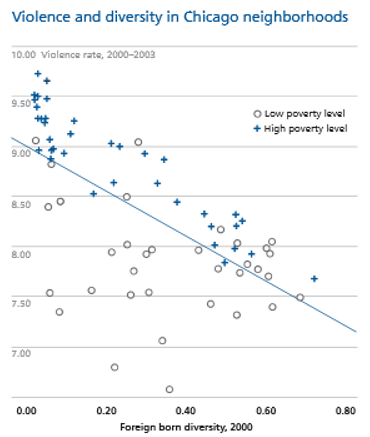Results 1 to 1 of 1
Thread Information
Users Browsing this Thread
There are currently 1 users browsing this thread. (0 members and 1 guests)
-
08-03-2015, 10:41 AM #1
 Republican Illegal Immigration Policy Will Increase Crime
read more : Republican Illegal Immigration Policy Will Increase Crime*|*Anhvinh DoanvoThe murder of Kathyrn Steinle by an undocumented immigrant has reignited the national debate on illegal immigration, with Republicans politicizing the murder to pass the "Enforce the Law for
Republican Illegal Immigration Policy Will Increase Crime
read more : Republican Illegal Immigration Policy Will Increase Crime*|*Anhvinh DoanvoThe murder of Kathyrn Steinle by an undocumented immigrant has reignited the national debate on illegal immigration, with Republicans politicizing the murder to pass the "Enforce the Law for
Sanctuary Cities Act" (H.R. 3009), a bill that would defund state and local law enforcement associated with "sanctuary cities". Though Steinle's murder may seem to be powerful evidence of a criminal
problem the US has with undocumented immigrants, H.R. 3009 is a dangerous attempt at the single-issue politicization of law enforcement and is based upon fallacious reasoning unsupported by peer-
reviewed literature.
Robert J. Sampson, a Harvard professor of sociology and former President of the American Criminological Society, published a study in 2008 in the aftermath of the murder of three teenagers in
Newark, NJ by undocumented immigrants, when politicians including Newt Gingrich had declared that the "war at home" against such immigrants was more deadly than the War in Iraq. In the study of
3,000 individuals in Chicago, including undocumented immigrants, regression analysis found that Hispanic Americans do better on many social indicators than socioeconomic factors predict, including the
propensity to violence.
Even when controlling for environmental and economic factors, first-generation immigrants were 45% less likely to commit violence than third-generation Americans while second-generation immigrants
were 22% less likely. This trend was seen in other races as well. Since undocumented immigrants tend to move to neighborhoods already networked with legal first-generation immigrants, and since
there was little evidence of sampling bias due to confidential reporting mechanisms, it was concluded that immigration diversity, whether undocumented or documented, is protective against violence,
especially in high poverty neighborhoods.

The above graphic is excerpted from Sampson's paper, "Rethinking Crime and Immigration". It indicates
that immigration, whether documented or undocumented, is strongly correlated with reduced crime in high-poverty
neighborhoods.
Similar Threads
-
Increase in crime reports involving illegal aliens
By ALIPAC in forum illegal immigration AnnouncementsReplies: 8Last Post: 12-16-2016, 10:39 AM -
Racist Roots of Republican Party Immigration Policy
By stevetheroofer in forum General DiscussionReplies: 8Last Post: 02-18-2011, 03:57 PM -
Big City Crime Increase
By swatchick in forum illegal immigration News Stories & ReportsReplies: 0Last Post: 03-09-2007, 08:57 AM -
Direct relation between illegal aliens and increase in crime
By dyehard39 in forum General DiscussionReplies: 2Last Post: 11-17-2006, 06:34 PM -
VIOLENT CRIME ON THE INCREASE CNN
By Dianne in forum General DiscussionReplies: 4Last Post: 06-13-2006, 10:42 AM


 LinkBack URL
LinkBack URL About LinkBacks
About LinkBacks




 Reply With Quote
Reply With Quote

Twitter just suspended Ad account on X
04-19-2024, 05:54 PM in illegal immigration Announcements